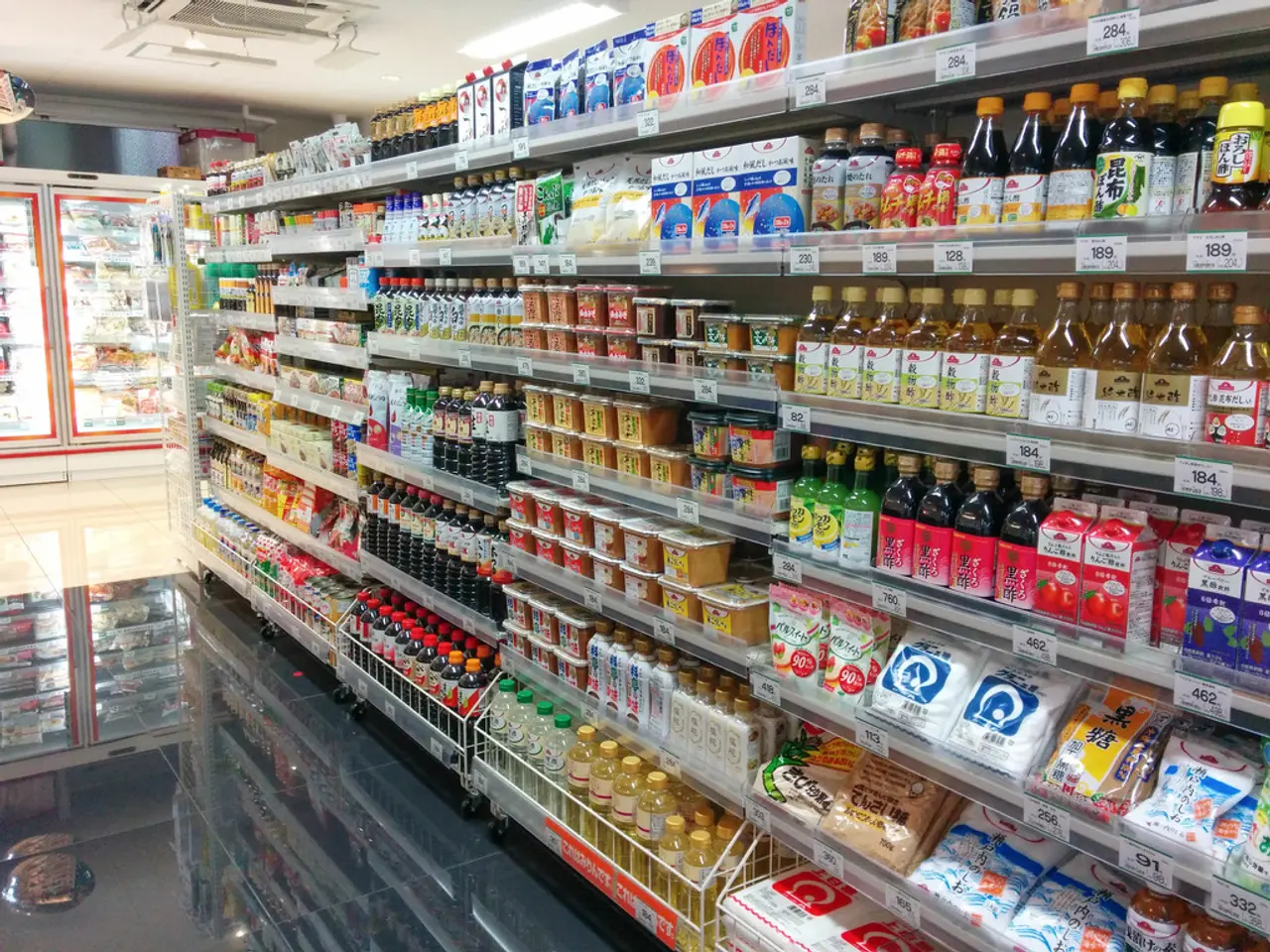"It appears we are likely losing approximately 10,000 euros per week"
In the vibrant city of Berlin, small retailers, particularly health food stores, are grappling with a persistent problem that costs them hundreds of millions of euros each year. The issue at hand is shoplifting, a problem that has become increasingly prevalent in recent years.
According to recent reports, shoplifting has cost small retailers in Berlin and Germany an estimated €4.95 billion ($5.84 billion) annually as of 2024, marking a 3% increase from the previous year. The majority of these losses, amounting to €4.2 billion, are attributed to theft by customers, employees, or delivery workers.
The Demskis, who operate health food stores in Berlin, have experienced this issue firsthand. Bureaucracy has become an obstacle for them, with absurd instances such as fines for a doormat protruding onto the sidewalk and a court case due to a price label issue. Despite their video surveillance systems, shoplifting continues to be a significant problem for them.
The Demskis send CCTV footage to the police about three times a week, but most cases are dropped by the courts. The issue has become so severe that it causes an estimated 10,000 euros of damage per week and several hundred thousand euros annually. To combat this, they have taken measures such as hanging mirrors everywhere, securing or locking most products, and displaying most shelves with empty packaging.
The types of shoplifters targeting health food stores are diverse. While there isn’t data specific to Berlin health food stores alone, studies from Germany indicate that most shoplifters are involved in what criminologists call "poverty crimes," meaning these individuals typically steal out of economic necessity or lack of money. The shoplifting incidents are mainly petty thefts involving small-value items, with 66.7% of prosecuted thefts involving items worth under €50, and 40.2% being under €15.
Organized shoplifting, such as coordinated groups or individual thieves targeting particular items based on a “shopping list,” accounts for about a third of total shoplifting losses overall. Thieves in health food stores have been known to steal expensive items and sell them online.
The Demskis, who are responsible for 55 employees, have decided that the struggles faced by their business are too great for their children to inherit. Carolin Demski plans to retire, ensuring the health food stores will no longer be a Demski family business.
The German Retail Federation estimates the annual loss due to theft for retailers in the region at 200 million euros. Despite the challenges, the Demskis remain resilient, continuing to serve their customers and contribute to the health food landscape of Berlin.
In a surprising turn of events, Carolin Demski has been known to chase shoplifters on the street if she catches them. The issue of shoplifting has increased in the past two years, but the Demskis, along with other retailers in Berlin, remain hopeful for a solution to this persistent problem.
[1] Bundesverband der Deutschen Einzelhandels (2024). Wirtschaftliche Auswirkungen von Diebstählen auf den Einzelhandel in Deutschland. Retrieved from https://www.bdeh.de/fileadmin/user_upload/BDEH/Publikationen/Studien/Diebstahl-Studie-2024.pdf
[2] Schmidt, K. (2023). Diebstahl in der Lebensmittelbranche: Ursachen, Auswirkungen und Strategien zur Prävention. Retrieved from https://www.lebensmittelzeitung.de/magazin/diebstahl-in-der-lebensmittelbranche-ursachen-auswirkungen-und-strategien-zur-prevention/2023/01/20/
- The financial impact of shoplifting on small retailers, such as the health food stores run by the Demskis in Berlin, extends beyond just the monetary loss as they also face significant expenses from damage and court costs.
- Apart from petty thefts by individuals in need, there are also organized groups engaging in shoplifting in the city's retail business, with a substantial percentage targeting high-value items from health food stores to sell online.
- The increasing issue of shoplifting in Berlin's retail sector, seen particularly in health food stores, has reached a level that affects not only the businesses' finances, but also their operations, with some owners opting to retire due to the persistent problem.




